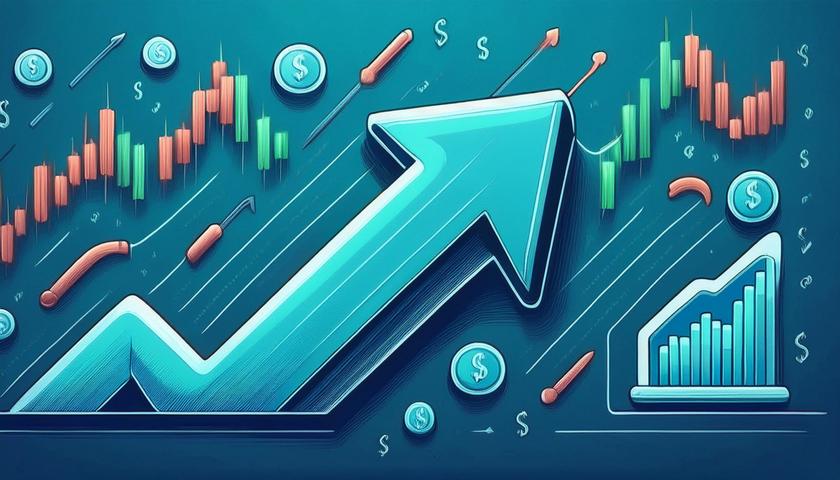Explore economic indicators like GDP, inflation, and interest rates, and learn how they impact options trading to help you enhance your trading strategy.
The impact of economic indicators on options trading

Introduction
Think of the market as a giant company, and economic indicators are its quarterly reports. These reports tell you how healthy the company (aka, the economy) is doing.
In technical terms, economic indicators are statistical measures that reflect the economic performance and conditions of a country. They are released periodically by government agencies and private organizations, influencing market sentiment and price movements.
Key economic indicators and their impact on options trading
GDP (Gross Domestic Product)
GDP stands for Gross Domestic Product. It’s a fancy way of saying the total monetary value of all final goods and services produced in a country over a specific period (usually a year).
It is like a giant price tag for everything a country makes and sells within its borders. This is basically the company’s total sales.
A strong GDP, like a booming business, often leads to a happy market (hello, call options!).
Impact on options trading:
| GDP growth | Impact on economy | Market sentiment | Options trading implication |
| Positive GDP growth | Signals a strong economy | Bullish | Call options might become more attractive as traders anticipate rising stock prices. |
| Negative GDP growth | Indicates economic contraction | Bearish | Put options may gain popularity as traders expect declining stock prices. |
Inflation
It might sound complicated, but it’s really just a fancy word for rising prices. Imagine you’re at your favorite candy store. Last year, you could buy a candy bar for ₹10. This year, the same candy bar costs ₹12.
That’s inflation in action! Think of inflation as sneaky gremlins slowly stealing the value of your money.
High inflation can make investors grumpy and potentially cause stock prices to fall (put options might be your best friend here).
Impact on options trading:
| Inflation level | Impact on economy and options trading | Options market response |
| High inflation | Central banks may raise interest rates to curb inflation, potentially lowering stock prices. | Put options become more attractive as investors anticipate falling stock prices. |
| Low inflation | Central banks may lower interest rates to stimulate economic growth, potentially boosting stock prices. | Call options could become more favorable as investors expect rising stock prices. |
Unemployment rate
Imagine you’re looking for a job and sending out resumes to all sorts of places. You’re qualified and ready to work, but you haven’t found the perfect fit yet.
That’s kind of like being unemployed. Unemployment refers to people who are actively looking for work but can’t find one. It’s like a big pool of people who are ready and willing to work but haven’t been hired yet.
A low unemployment rate is like the company winning an award for happy employees.
This often leads to more people spending money, which can boost stock prices (call options, anyone?).
Impact on options trading:
| Unemployment level | Economic condition and impact on options trading | Options market response |
| Low unemployment | Indicates a robust economy with high consumer spending and potential stock price increases. | Increased interest in call options as investors expect rising stock prices. |
| High unemployment | Suggests economic weakness with reduced consumer spending and potential stock price declines. | Demand for put options may rise as investors hedge against falling stock prices. |
Interest rate
Imagine you borrow money from your friend to buy a new bike. An interest rate is like the fee you pay your friend for lending you the money.
It’s a percentage of the loan amount that you pay back on top of what you borrowed.
This is the cost of borrowing money, kind of like the company’s loan interest.
Higher interest rates can slow down the economy, potentially leading to stock price dips (put options could be your shield).
Impact on options trading:
| Interest rate movement | Economic impact and influence on options trading | Options market response |
| Rising interest rates | Can slow economic growth and reduce corporate profits, potentially leading to declining stock prices. | Put options may become more attractive as investors anticipate lower stock prices. |
| Falling interest rates | Stimulate economic activity and corporate earnings, typically driving stock prices higher. | Call options could become more desirable as investors expect increasing stock prices. |
Consumer Confidence Index (CCI)
The Consumer Confidence Index is a survey that measures how optimistic people are about the economy.
It’s like a giant mood meter for consumers, gauging their overall feeling about spending and the future.
A high CCI suggests people are feeling good and might spend more (call options could be a good fit).
Impact on options trading:
| Consumer confidence level | Economic outlook and impact on options trading | Options market response |
| High consumer confidence | Reflects optimism about the economy, leading to increased spending and rising stock prices. | Preference for call options as investors bet on further stock price gains. |
| Low consumer confidence | Indicates pessimism with reduced spending and potential stock price declines. | Put options may become more appealing as investors hedge against possible stock price decreases. |
Conclusion
Economic indicators play a crucial role in shaping market sentiment and price movements. For options traders, understanding and analyzing these indicators can provide valuable insights and enhance trading strategies.
By staying informed about key economic data and its potential impact on the markets, traders can make more informed decisions, manage risk effectively, and optimize their trading outcomes.
Whether you’re a seasoned trader or a beginner, incorporating economic indicators into your trading toolkit is essential for navigating the dynamic world of options trading.